The Research Council of Norway recently awarded grants to several innovation projects in the industrial sector. One of the lucky companies was the newcomer NordicRWE.
NordicRWE was granted 16 million NOK for their research and development (R&D) project that will focus on applying Real-World Evidence (RWE) in different steps in the drug development process.
Let us pause for a moment at the term RWE. What is it? According to the U.S. Food and Drug Administration (FDE), real-world data are the data relating to patient health status and/or the delivery of health care routinely collected from a variety of sources. Real-world evidence is the clinical evidence of the usage and potential benefits or risks of a medical product derived from analysis of real-world data.
Addressing a mismatch
“Nordic and Norwegian health data are among the best in the world, but we can use them much better than how it is done today. This is especially true for drug development and follow-up of patient care. However, advanced research and quality assurance are needed”, said Ketil Widerberg, chairman of the board in Nordic RWE.
Ketil Widerberg is also the general manager of Oslo Cancer Cluster.
The vision of NordicRWE is to develop a research-based system for RWE that supports drug development in accordance with high regulatory demands. Observational data, epidemiologic methods of research, and the use of artificial intelligence and machine learning are all part of the research base.
The funded R&D project will construct external control arms for oncology clinical trials and combine machine learning with pharmacoepidemiology for drug signal detection. Pharmacoepidemiology is the study of the utilization and effects of drugs in large numbers of people. It provides an estimate of the probability of beneficial effects of a drug in a population and the probability of adverse effects.
“There is a mismatch between the need to document effect and the availability and tools to analyse health data. This is what we aim to address,” said Steinar Thoresen, project leader NordicRWE.
Well known in the Norwegian health industry, Thoresen has worked for more than twenty years at The Cancer Registry of Norway and published more than a hundred international papers on cancer-epidemiology. He has held leading roles in the pharma industry since 2006, and he has seen many of the hurdles and opportunities to succeed with innovative clinical trials. Thoresen will join the company in October in a half-time position while keeping a separate consultancy role.
Private initiatives are needed
“This is a once-in-a-lifetime opportunity,” said Christian Jonasson, project leader NordicRWE.
Jonasson will join the company full time in October from the position of Specialist Director Health Data at the Norwegian Institute of Public Health. He brings 25 years of diverse experience from R&D roles in pharma, academia, and the governmental sector.
“The need for high-quality health data is increasing exponentially and private initiatives are needed to complement government programs. Cooperation based on public-private partnerships is our goal,” said Jonasson.
The funded R&D project will focus on external control arms for oncology clinical trials and machine learning methods combined with pharmacoepidemiology for drug signal detection, which represents innovative applications of RWE in drug development.
Joining forces for RWE
Professor Arnoldo Frigessi, Director at the Oslo Centre for Biostatistics and Epidemiology at the University of Oslo, and Lena Nymo Helli, CEO of Norway Health Tech, have both joined the board as non-executive directors.
“Technologically, we are at a crossroad. The ability modern machine learning and statistics give for understanding and being able to deliver better healthcare is transformative, NordicRWE comes at the right time,” said Professor Frigessi.
He has supervised more than forty Ph.D. students and published more than 150 peer-reviewed papers in the field.
“We see real-world data change the dynamics in consultancy companies, technology companies, and medical technology companies. However, we believe now is the time for a dedicated effort to enable Nordic health data to be transformative. This is what NordicRWE is about,” said Lena Nymo Helli.
With more than 25 years of experience in the international pharmaceutical industry, she has worked in many phases of the product life cycle from R&D to sales and marketing.
The timing is now
In the project description to the Research Council, NordicRWE stresses that the timing is now for RWE, mainly because of precision medicine, implying advanced treatments for smaller patient groups, making health data a natural part of drug development, and evaluation of patient care.
To succeed with the research project, NordicRWE has partnered with the AI drug development division in NEC Corporation, The Cancer Registry of Norway, and the University of Oslo. The company is currently looking for new employees.
For more information about Nordic RWE, see the company webpage.

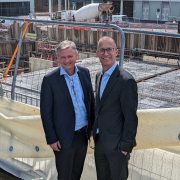
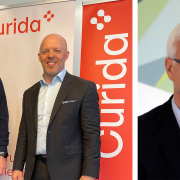
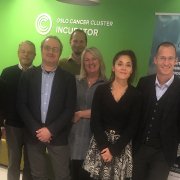
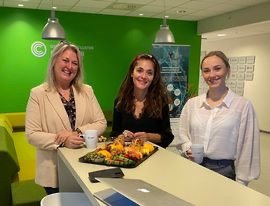
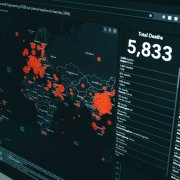 Clay Banks / Unsplash
Clay Banks / Unsplash






